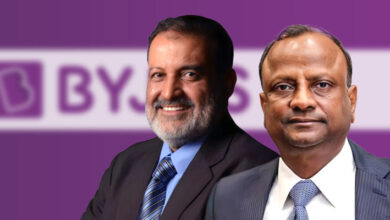All About MSME Loans

Most public sector and private Indian banks offer credit facilities to MSMEs that require financial support to establish or expand their business. Also, the Government of India has initiated protocols to fund micro, small and medium enterprises.
These initiatives have played a vital role in ensuring the survival of some sectors that struggled during COVID-19. Continue reading to learn what MSMEs are, the eligibility criteria for applying for an MSME loan and the application process.
What Is an MSME
Micro, Small and Medium Enterprise comprise ventures that involve production and businesses focused towards delivering services and simultaneously satisfy all the below-mentioned criteria:
| Micro Sector | Investment is less than Rs. 1 Crore Annual turnover is less than Rs. 5 Crores |
| Small Sector | Investment is less than Rs. 10 Crores Annual turnover is less than Rs. 50 Crores |
| Medium Sector | Investment is less than Rs. 50 Crores Annual turnover is less than Rs. 250 Crores |
Note: The investment value includes the budget allocated for buying capital equipment, manufacturing plants and other operational expenses.
What Are the Eligibility Criteria to Apply for an MSME Loan
The lending institutions decide the eligibility criteria; hence they vary for a particular bank or NBFC. Moreover, the credentials drastically differ depending on the tenure and applicability of a specific scheme.
Please refer to the following table to grab a generalised idea regarding eligibility.
| Business Type | Criteria |
| Service sector | Investment should be less than Rs. 10 Lakhs for micro industries.
For small and medium-scale sectors, the investment must not exceed Rs. 2 Crores and Rs. 5 Crores, respectively. |
| Manufacturing sector | For micro sectors, investment cannot exceed more than Rs. 25 Lakhs.
Small sectors cannot draw investments of more than Rs. 5 Crores while the upper investment limit for medium sectors is Rs. 10 Crores. |
What Documents Are Mandatory for an MSME Loan Application
Your preferred bank or NBFC will provide a list of documents that must be presented while applying for a loan. However, we have provided the compulsory papers, which a borrower must keep handy irrespective of the scheme.
| Verification purpose | Documents to be submitted |
| ID proof | Aadhaar Card, PAN Card, Voter ID, Passport |
| Residential proof | Utility bills, rental contracts or ration card |
| Registered business address | Utility bills, lease agreement, rental contract |
| Income details | Balance sheet copies of a previous couple of years |
| Tax record | PAN Card, IT returns, sales tax returns |
| Proof of security deposits | Photocopies of deeds (title deeds and lease deeds) |
| Additional papers | Project-specific report (if any) |
How to Apply For an MSME Loan
The application process is easy to follow as the user interface is simplified. First, you must verify whether your preferred lender has provided the option of applying online. If the answer is yes, then access the application form, fill up the details carefully and follow the instructions to understand the submission process. Most lenders specify the borrower to submit a hard copy of the application form at the nearest authorised office of the company. The benefit of doing so is that the loan seeker can clarify any scheme-related query with the designated officials.
Are MSME Loans Secured or Unsecured
Most MSME lenders do not ask the borrower to pledge something of value. Thus generally, this credit instrument is unsecured. However, if you are asked to present any collateral under specific circumstances, we suggest you contact the legal advisors before signing the agreement.
What Are the Government Initiatives to Promote the MSME Sector
The Indian Government has launched several lending schemes to promote emerging enterprises and generate room for increased employment. Many loan options are collateral-free, and the applicants get immediate approval. Three of the most popular schemes have been discussed below:
- Mudra Loans
These loans come under the broader Pradhan Mantri Mudra Yojana scheme and are meant to support enterprises not involved in the corporate or farming domain financially. The upper limit of the loan amount is Rs. 10 Lakhs.
Furthermore, depending on the stage of business growth, this scheme has been classified into three distinct phases that determine the maximum approvable loan amount.
| PMMY Scheme Name | Loan amount (Upper Limit) | Business Phase |
| Shishu | Rs. 50, 000 | Early stage of a business |
| Kishor | Rs. 50, 000 – Rs. 5 Lakhs | Mid-stage (money needed to sustain a business) |
| Tarun | Rs. 5 Lakhs – Rs. 10 Lakhs | Expansion stage (purchasing a new manufacturing plant/ Investing in capital equipment) |
- Prime Minister’s Employment Generation Program (PMEGP)
This loan scheme aims to motivate India’s youth to set up new ventures to consolidate their economic status. The PMEGP scheme is closely associated with a separate central scheme known as Pradhan Mantri Rojgar Yojana.
- Credit Guarantee Funds Trust for Medium and Small Enterprises (CGTMSE)
Micro and small business owners who are continuing their trade for a while and newly registering commercial enthusiasts can apply for this scheme. A maximum of Rs. 1 Crore loan amount can be sanctioned under this plan, the best part being that it is an unsecured loan.
What Are the Top Lenders Offering MSME Loans in 2022
To summarise a plan, before going for an MSME business loan, you must get an idea of the msme loan interest rates levied by different credit issuers.
| Lender | Interest Rate (per annum) |
| Bajaj Finance | 18% onwards |
| KreditBee | 15% onwards |
| Lendingkart | 14% onwards |
| NeoGrowth | 18% onwards |
| FlexiLoans | 12% onwards |
*Note: Interest rates may vary depending on several factors such as the credit score, revenue, business owner age at the time of loan application, etc.
What Things to Make Sure of Before Applying for an MSME Loan
There are certain conditions you must abide by for seamless loan processing.
- Your CIBIL score must be greater than 750
- All the required documents must be kept handy
- It is suggested not to approach multiple lenders as it can affect your credit score
- Lenders that charge an upfront fee should be avoided as chances are high they can be fraud
Small and medium-scale business owners often face situations where they feel an inadequate cash flow is hampering their growth prospects. Therefore, they should complete their GST registration process to avoid such a crisis. Eventually, they will be entitled to several flexible MSME lending schemes in terms of repayment tenure, creating a favourable scenario for business expansion.
| Content Checklist: | Version 2.0 |
| Level 1 | |
| Copyscape Premium Verification | 100% Passed |
| Grammarly Premium Score | 91 |
| Readability Score | 57.6 |
| Primary Keyword Usage | NA |
| Secondary Keyword Usage | NA |
| Highest Word Density | the – 5.01% |
| Data/Statistics Validation Date | 04/11/22 |
| Level 2 | |
| YOAST SEO Plugin Analysis | 4 Green, 1 Orange, 2 Red |
| Call-to-action Tone Integration | NA |
| LSI Keyword Usage | Incorporated |
| Level 3 | |
| Google Featured Snippet Optimisation | NA |
| Content Camouflaging | NA |
| Voice Search Optimisation | NA |
| Generic Text Filtration | Done |
| Content Shelf-life | Evergreen |




